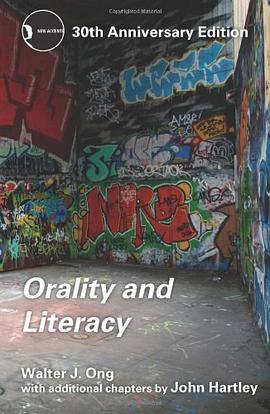Orality and Literacy
豆瓣
The Technologizing of the Word (30th Anniversary Edition)
Ong, Walter J.
简介
Walter J. Ong's classic work provides a fascinating insight into the social effects of oral, written, printed and electronic technologies, and their impact on philosophical, theological, scientific and literary thought. This thirtieth anniversary edition - coinciding with Ong's centenary year - reproduces his best-known and most influential book in full and brings it up to date with two new exploratory essays by cultural writer and critic John Hartley. Hartley provides: A scene-setting chapter that situates Ong's work within the historical and disciplinary context of post-war Americanism and the rise of communication and media studies; A closing chapter that follows up Ong's work on orality and literacy in relation to evolving media forms, with a discussion of recent criticisms of Ong's approach, and an assessment of his concept of the 'evolution of consciousness'; Extensive references to recent scholarship on orality, literacy and the study of knowledge technologies, tracing changes in how we know what we know. These illuminating essays contextualize Ong within recent intellectual history, and display his work's continuing force in the ongoing study of the relationship between literature and the media, as well as that of psychology, education and sociological thought.
contents
John Hartley: Before Ongism: "To become what we want to be, we have to decide what we were"
Orality & Literacy: The Technologization Of The Word Introduction
Part 1: The orality of language
1. The literate mind and the oral past
2. Did you say ‘oral literature’?
Part 2: The modern discovery of primary oral cultures
1. Early awareness of oral tradition
2. The Homeric question
3. Milman Parry’s discovery
4. Consequent and related work
Part 3: Some psychodynamics of orality
1. Sounded word as power and action
2. You know what you can recall: mnemonics and formulas
3. Further characteristics of orally based thought and expression
4. Additive rather than subordinative
5. Aggregative rather than analytic
6. Redundant or ‘copious’
7. Conservative or traditionalist
8. Close to the human lifeworld
9. Agonistically toned
10. Empathetic and participatory rather than objectively distanced
11. Homeostatic
12. Situational rather than abstract
13. Oral memorization
14. Verbomotor lifestyle
15. The noetic role of heroic ‘heavy’ figures and of the bizarre
16. The interiority of sound
17. Orality, community and the sacral
18. Words are not signs
Part 4: Writing restructures consciousness
1. The new world of autonomous discourse
2. Plato, writing and computers
3. Writing is a technology
4. What is ‘writing’ or ‘script’?
5. Many scripts but only one alphabet
6. The onset of literacy
7. From memory to written records
8. Some dynamics of textuality
9. Distance, precision, grapholects and magnavocabularies
10. Interactions: rhetoric and the places
11. Interactions: learned languages
12. Tenaciousness of orality
Part 5: Print, space and closure
1. Hearing-dominance yields to sight-dominance
2. Space and meaning
3. Indexes
4. Books, contents and labels
5. Meaningful surface
6. Typographic space
7. More diffuse effects
8. Print and closure: intertextuality
9. Post-typography: electronics
Part 6: Oral memory, the story line and characterization
1. The primacy of the story line
2. Narrative and oral cultures
3. Oral memory and the story line
4. Closure of plot: travelogue to detective story
5. The ‘round’ character, writing and print
Part 7: Some theorems
1. Literary history
2. New Criticism and Formalism
3. Structuralism
4. Textualists and deconstructionists
5. Speech-act and reader-response theory
6. Social sciences, philosophy, biblical studies
7. Orality, writing and being human
8. ‘Media’ versus human communication
9. The inward turn: consciousness and the text
John Hartley: After Ongism: The Evolution of Networked Intelligence